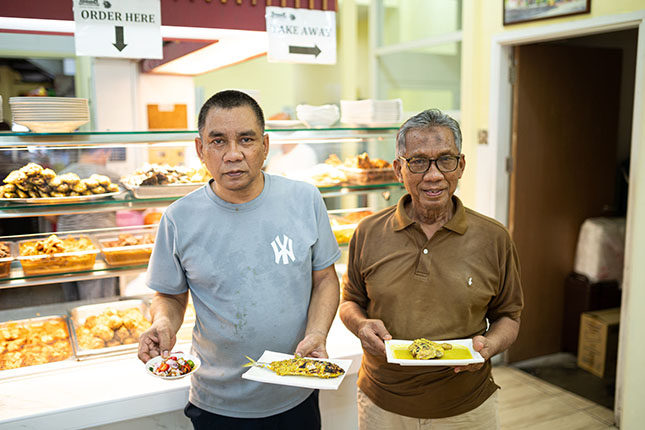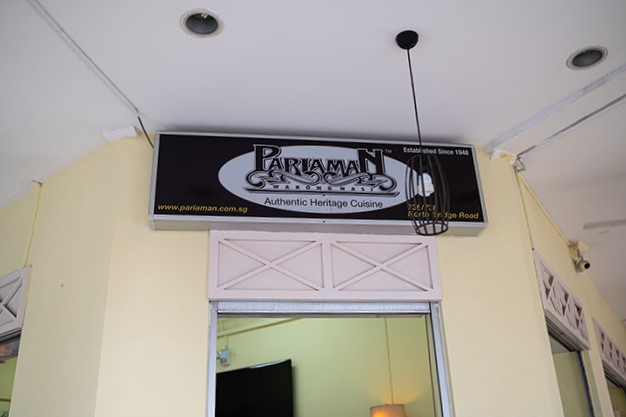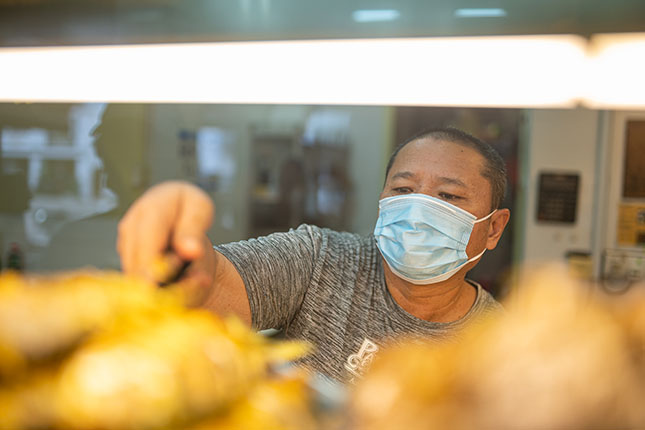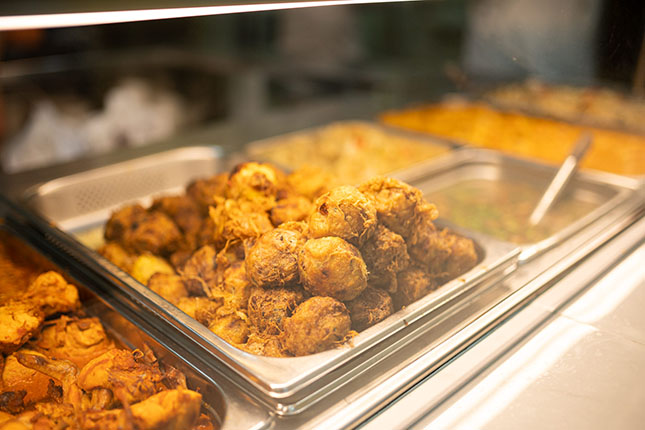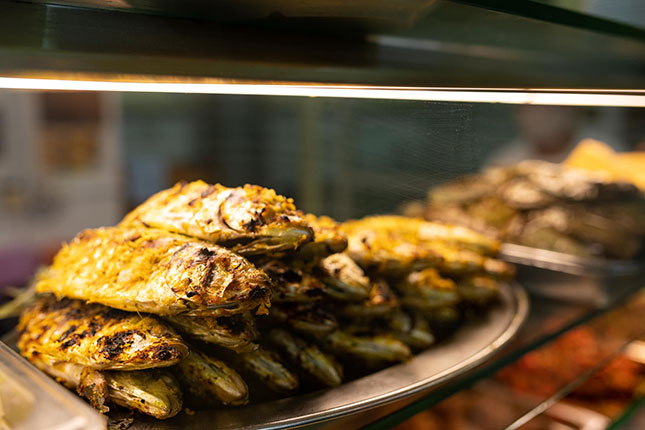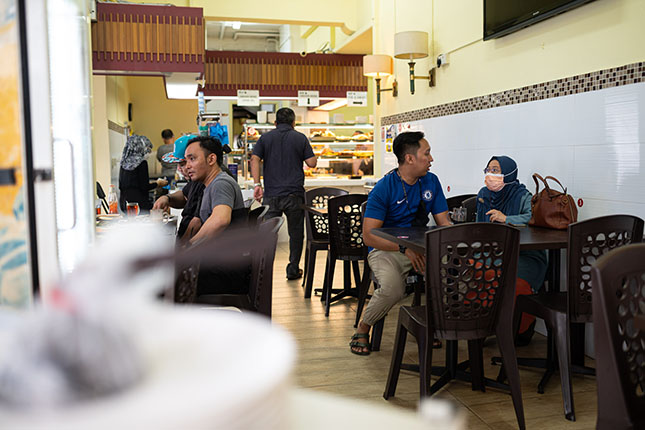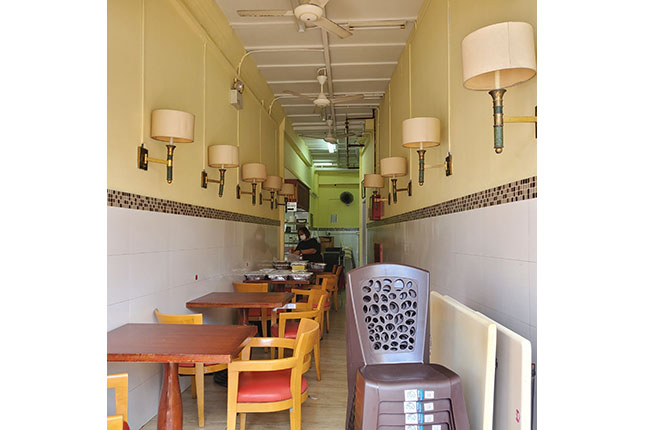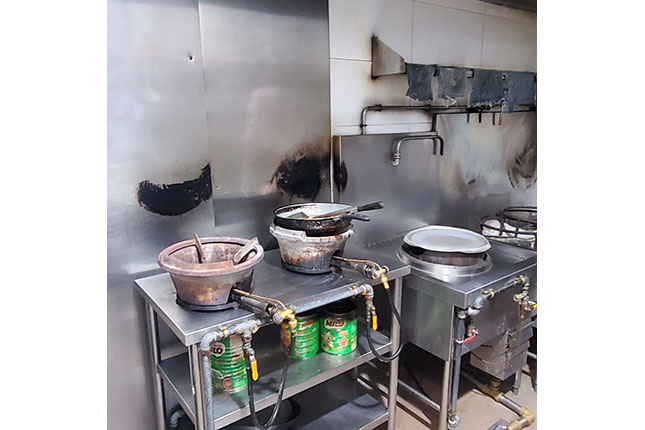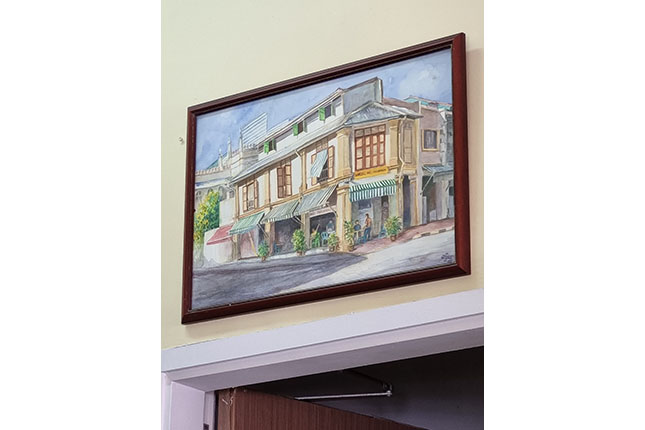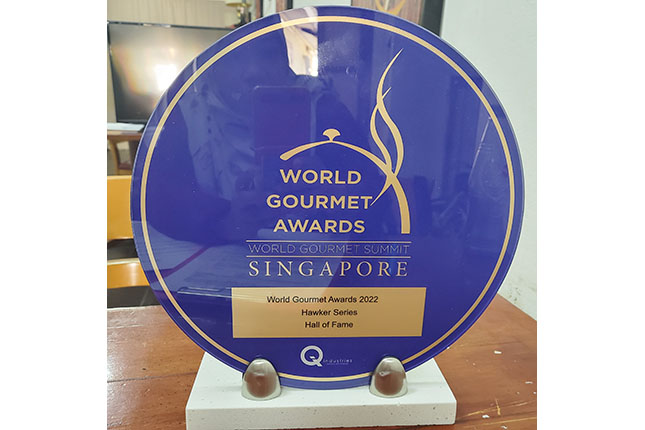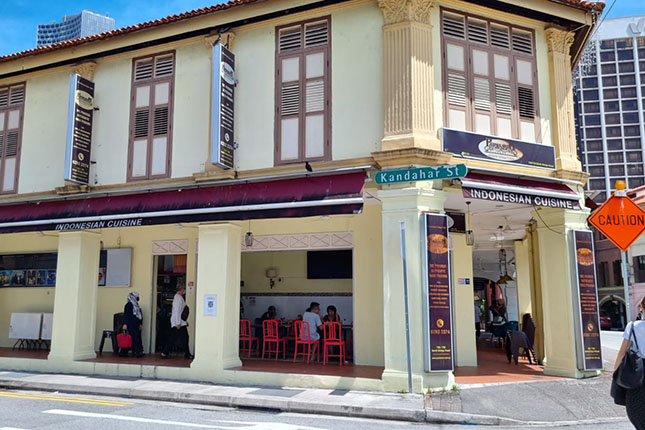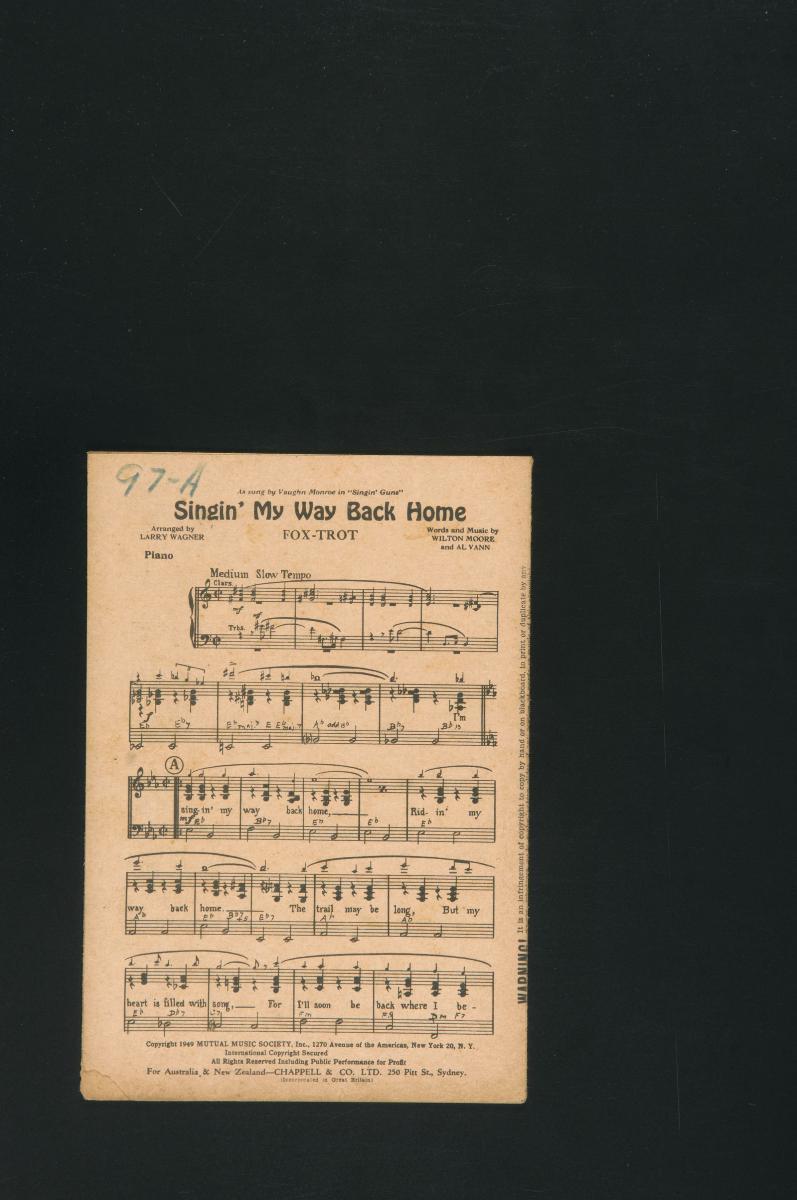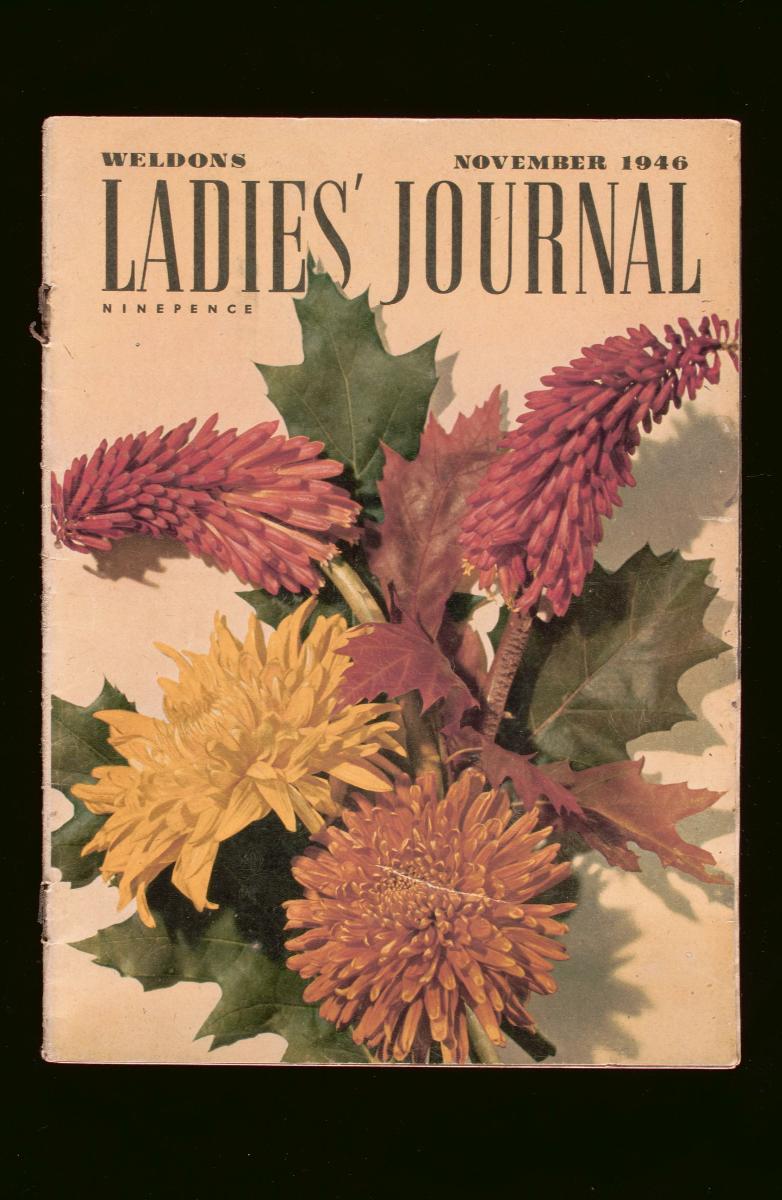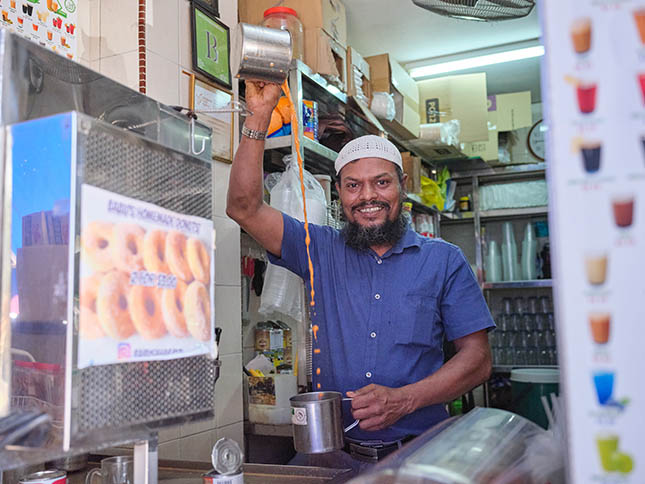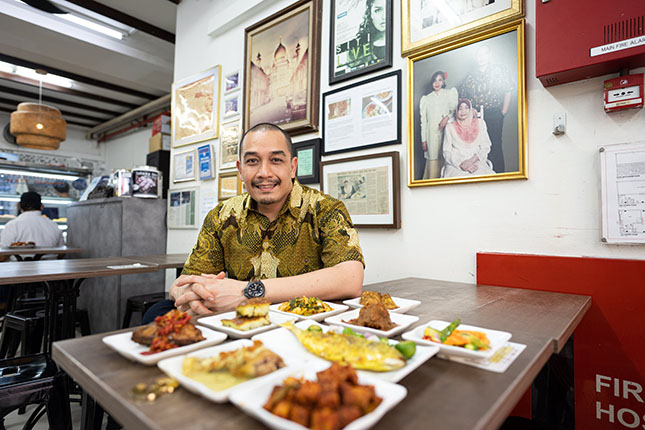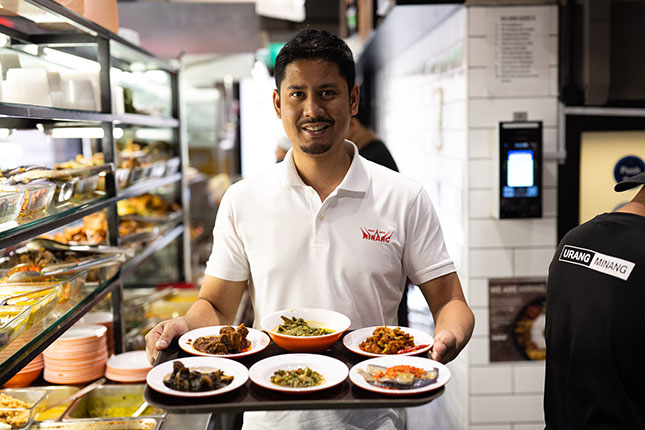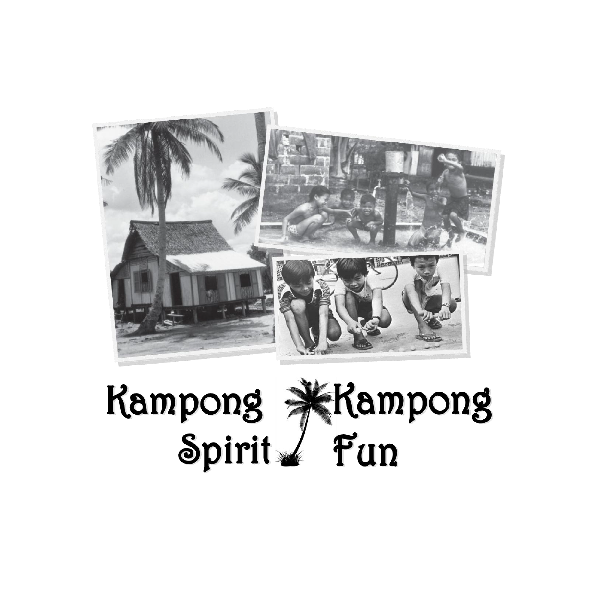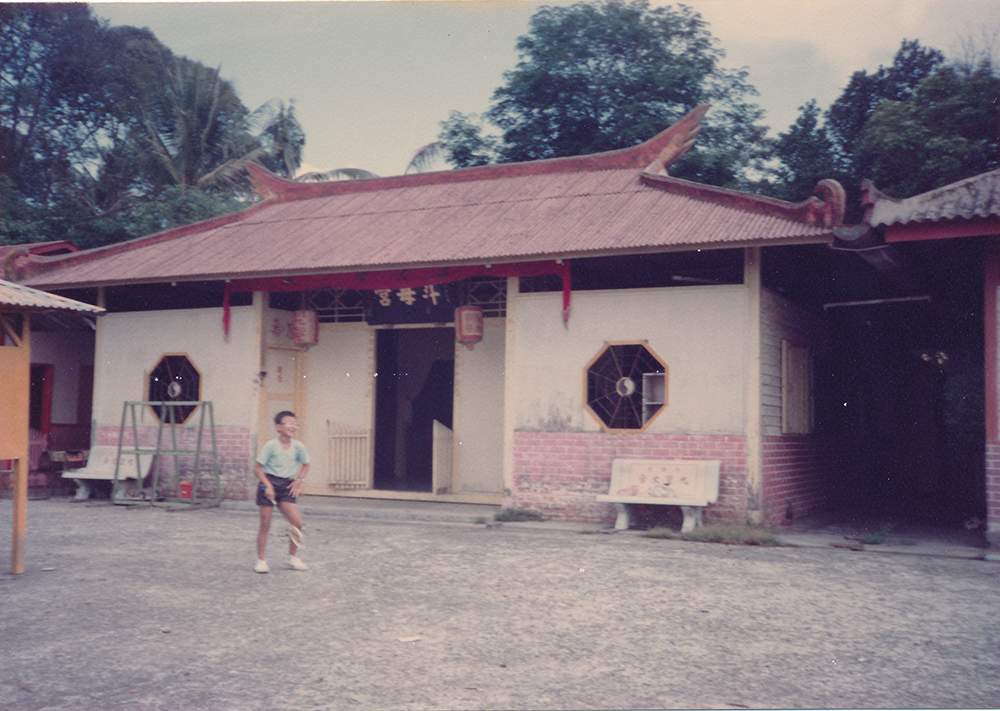Staying True to the Padang Tradition
|
Name of business: |
Warong Nasi Pariaman |
|
Business Location: |
738 North Bridge Road, Singapore 198706 |
|
Business type: |
Food & Beverage |
|
Established: |
1948 |
Warong Nasi Pariaman has been selling nasi padang in Kampong Gelam for more than seven decades. The family restaurant stays true to its original recipe and retains the traditional technique of cooking food over a charcoal fire. Founded by Mr Isrin bin Ibrahim and his wife, Mdm Rosna binte Zainal Abidin in 1948, the restaurant is now run by their children, who continue the family legacy by preserving the authenticity of the Minangkabau cuisine.
At the intersection between North Bridge Road and Kandahar Street, there is a coffee shop, painted in gentle, inviting shades of buttermilk yellow. On its maroon awning, “Indonesian Cuisine” is printed in bold capital letters. Flanking the building are brown signboards, proudly declaring, “We provide authentic nasi padang”. Tables fill both the interior and exterior of the restaurant, with every seat taken up by customers—families and couples relishing every bite of their meal. The coffeeshop is abuzz with sounds—the blend of voices engaged in friendly chit-chat, the sizzle of food being prepared in the kitchen, the clatter of utensils against pans and plates—all of which come together to set the lively atmosphere of Warong Nasi Pariaman. The air is soaked in the smell of rice, chicken, spices, and more, exciting the taste buds of newcomers and regulars alike.
Warong Nasi Pariaman was started in 1948 by husband-and-wife duo Mr Isrin bin Ibrahim and Mdm Rosna binte Zainal Abidin. They migrated from Padang, West Sumatra, Indonesia, and set up a street stall in Kampong Gelam. The couple brought a piece of home to Singapore through their cooking, specialising in nasi padang dishes—a Minangkabau style of steamed rice that is served with an assortment of pre-cooked dishes, such as beef rendang (slow-cooked beef) and ayam bakar (roasted chicken). From the assortment, customers can choose a few dishes to eat. If a family is dining together, the dishes will be portioned accordingly and served on individual plates for sharing. As time passed, the family was able to rent a small part of a shophouse in North Bridge Road and many residents in Kampong Gelam quickly fell in love with the restaurant’s food.
Mr Isrin’s cooking techniques are grounded in tradition, even though it requires additional work to prepare. The Minangkabau cooking style typically involves food being cooked over a charcoal flame, which gives each bite a subtle but unique smoky taste. The couple also took the effort to source quality ingredients from the nearby market, using great care to prepare the ingredients for cooking. Over time, the restaurant made a name for itself, and customers would flock to Warong Nasi Pariaman whenever they had a craving for Minangkabau food. The family eventually became well-off enough to rent the whole coffee shop.
In the 1990s, the couple passed down the business to their children, who now run the restaurant with their families. The children helped with the restaurant once they graduated from school. Mr Jumrin was one of the only sons who did not join the business immediately after school, as he entered the hotel industry. When his parents were getting on in years, the restaurant’s backend operations needed someone to fill the vacuum. Mr Jumrin subsequently resigned from his job in 1988 and took on the responsibility of marketing and cooking the dishes. He picked up both his parents’ traditional cooking methods, incorporating them into the menu we see today.
More than 70 years since its founding, Warong Nasi Pariaman stays true to its recipes and food preparation methods. “Our dishes are all the same from my father. We don’t change. We don’t add anything,” Mr Jumrin says. The restaurant still uses a traditional charcoal stove to cook dishes, the same way his parents did it. Every day, he engages in a routine of performing his prayers, preparing the ingredients at the restaurant, and cooking the dishes. He must wake up before dawn to ensure that most of the dishes are ready by 10am, so that the restaurant can serve the incoming lunch crowd. Even if the work is arduous, Mr Jumrin commits himself to preserving the authenticity of nasi padang. He is opposed to the idea of fusion food, even though it is popular among the younger generation. “For traditional food, I think if my generation—they don’t eat, they don’t follow them, then it’s already gone. The heritage is not there,” Mr Jumrin says. He worries that the generation after him will lack the passion to continue the Pariaman legacy. To enable the tradition to live on, he is willing to collaborate with cooking schools to share his recipe with students. Mr Jumrin also conducted a live demonstration with the Singapore Tourism Board, which was streamed online during the Singapore Food Festival 2021.
Warong Nasi Pariaman has formed tight-knit bonds with other nasi padang restaurants in Kampong Gelam. These ties span across generations and a sense of family is present. For instance, the grandparents of Rumah Makan Minang and Sabar Menanti’s current owners are friends with Mr Isrin and Mrs Rosna. They were able to connect easily as they came from the same hometown. Once, when Pariaman’s fish supplier contracted COVID-19, Rumah Makan Minang was happy to offer the contact of their own fish supplier. The members of Sabar Menanti would also often frequent Pariaman to have lunch. Hjh Maimunah, the founder of another Malay and Indonesian restaurant of the same name, even came to Pariaman for advice on improving the business. These relationships are precious and unique – Mr Jumrin hopes that this sense of community will remain in Kampong Gelam, along with the Padang tradition that has given Warong Nasi Pariaman its colour and life for the past seven decades.
Interviewed by Mas Hidayati Hamzah and Fistri Abdul Rahim on 29 May 2022.




